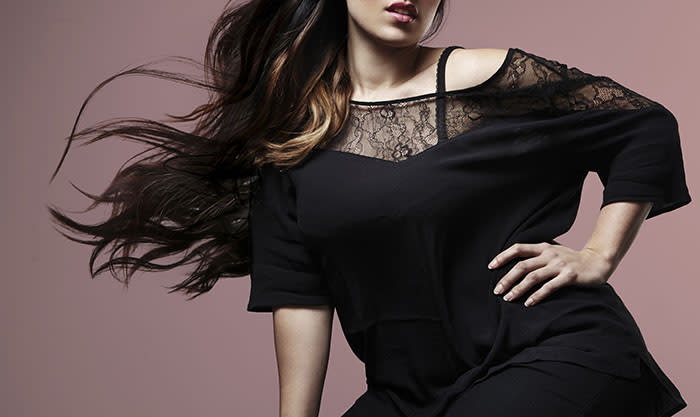Study Confirms Women's Self-Esteem Changes Depending on the Models They See
No one wants to feel like they don’t measure up, yet evidence shows us that women spend vast amounts of brain-space trying to figure out if they do — particularly when it comes to body-image. According to a study published in the journal Communication Monographs, researchers from Florida State University (FSU) uncovered evidence for improving women’s health and body positivity; unsurprisingly it has to do with representations of the female body and what we are exposed to on a daily basis.

The study looked at the psychological and physiological effects women experienced when looking at images of models of different sizes.
The researchers gathered 49 college-aged women — all of whom reported a desire to be thinner — and instructed them to view images of thin, average, and plus-size fashion models on a TV screen.
After looking at each image, the volunteers answered questions regarding their body satisfaction, along with how much they compared their own shape to the models’. When the thin models appeared on screen, the participants scrutinized themselves more and reported less body satisfaction. However, they made fewer comparisons and experienced higher levels of body satisfaction when they watched the average and plus-size models strut their stuff.
“We found overwhelmingly that there is a clear psychological advantage when the media shows more realistic body types than the traditional thin model,” Jessica Ridgway, PhD, study co-author and assistant professor in the Department of Retail, Merchandising and Product Development at FSU said.
It’s also interesting to note that the women who participated in this research “paid less attention and remembered less about the models” when they viewed the traditionally thin women, yet the same volunteers had the opposite reaction when they observed the average and plus-size models. Ridgway explains to Yahoo Beauty that this response is due to the test group engaging in social comparisons.
“Such internal processing likely results in less external attention and, subsequently, poorer memory,” she continues. “When there was less internal processing — or less social comparisons — attention increased resulting in increased memory. This was the case for average and plus-size models.”
Given these results, Ridgway is hopeful that their research will encourage a shift in marketing strategies and advertisements.
“Our findings indicate that depicting average and plus-size models might counter the negative psychological effects — for instance, eating disorders, depression, and mood — that have been found when campaigns depict the ‘ultra-thin,’” she concludes. “Hence, our recommendation is to depict more average and plus-sized models in order to counter the potential negative psychological effects of the ultra-thin.”
Read more from Yahoo Style + Beauty:
Pop Star Perrie Edwards Getting praise for Flaunting Her Surgery Scar
Snoop Dogg’s Daughter Flaunts Her Natural Hair and Opens Up About Body Acceptance
Follow us on Instagram, Facebook, and Pinterest for nonstop inspiration delivered fresh to your feed, every day. For Twitter updates, please follow @YahooStyle and @YahooBeauty.
